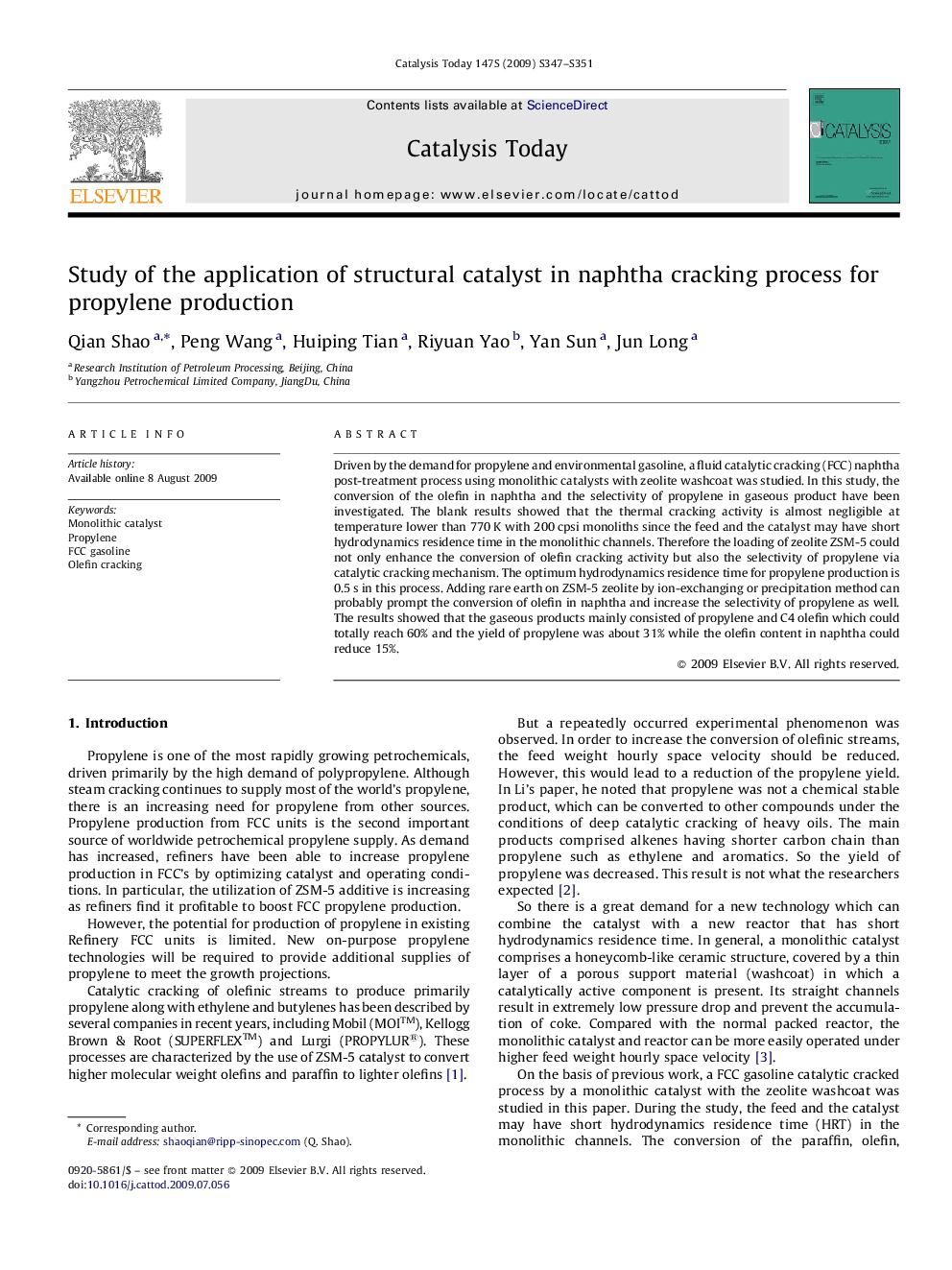| Article ID | Journal | Published Year | Pages | File Type |
|---|---|---|---|---|
| 57118 | Catalysis Today | 2009 | 5 Pages |
Driven by the demand for propylene and environmental gasoline, a fluid catalytic cracking (FCC) naphtha post-treatment process using monolithic catalysts with zeolite washcoat was studied. In this study, the conversion of the olefin in naphtha and the selectivity of propylene in gaseous product have been investigated. The blank results showed that the thermal cracking activity is almost negligible at temperature lower than 770 K with 200 cpsi monoliths since the feed and the catalyst may have short hydrodynamics residence time in the monolithic channels. Therefore the loading of zeolite ZSM-5 could not only enhance the conversion of olefin cracking activity but also the selectivity of propylene via catalytic cracking mechanism. The optimum hydrodynamics residence time for propylene production is 0.5 s in this process. Adding rare earth on ZSM-5 zeolite by ion-exchanging or precipitation method can probably prompt the conversion of olefin in naphtha and increase the selectivity of propylene as well. The results showed that the gaseous products mainly consisted of propylene and C4 olefin which could totally reach 60% and the yield of propylene was about 31% while the olefin content in naphtha could reduce 15%.
